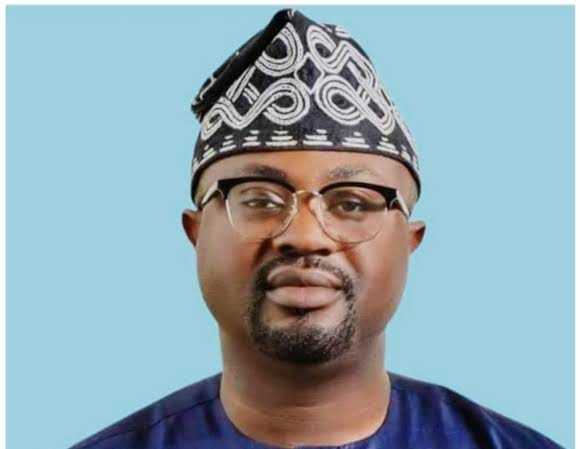Governors elected on the platform of the All Progressives Congress (APC) yesterday ruled Governor Godwin Obaseki of Edo State off the track over his recent allegation that the federal government printed N60 billion to augment the March revenue allocation to states.
The governors, in a statement in the name of the Progressive Governors’ Forum (PGF), said Obaseki’s statement “does not reflect the true position of things.”
The PGF admitted that although there was a shortfall in gross statutory revenues by N43.34 billion compared to the previous month “an augmentation was made in the sum of N8.65 billion from the Forex Equalization Fund Account, which brought the total distributable revenue to N605.59 billion.”
Giving a background to the practice of revenue sharing in the country, the forum said: “Federation revenues distributed monthly primarily consist of mineral revenues from the sale of oil and gas, as well as non-mineral revenues from customs and excise duties, company income tax and value added tax.
“Yes, there are periods when the country experiences significant fiscal shocks in federation revenues. However, these shocks are offset by other savings serviced from the federation account, including distributions from the domestic excess crude proceeds and the foreign excess crude savings account.
“These payments started since 2008 when the country first experienced fiscal shocks from the fallouts of the global financial crisis of 2008-2009.
“As a trained Economist who has been a governor since 2016, Mr Obaseki is aware of all the support states have received from President Buhari in coping with the shocks that have resulted from the COVID-19 pandemic and resulting economic recession.
“Not only have we received budget support, bail out support to meet salary obligations and infrastructure refunds to all states, this was implemented in the overall public interest without discrimination on the basis of party affiliation.
“This is why it’s unfortunate and disingenuous to allege preferential treatment of APC states when PDP governed states are even greater beneficiaries of all the support.
“Besides, there’s nothing exceptional in this current review of economic orthodoxy.
Almost every Central Bank in the world is taking steps to support their government in coping with the effect of COVID-19 pandemic on the national economy. This has become the norm rather than the exception as all countries grapple with the deleterious effect of economic recession.”
The APC governors described Obaseki’s claim as unfortunate and inaccurate, arguing that it becomes “even more worrisome when juxtaposed with the official statement released after the meeting of PDP governors last week, calling for restructuring and greater devolution of powers to states.
Continuing, the PGF said: “It would appear that matters that require the collective resolve of all leaders are now being turned into purely partisan, point scoring claims.
“Every discerning Nigerian knows that the APC’s position on restructuring and devolution is clearly articulated and accurately captured in the report of Governor Nasir el-Rufai’s Committee on True Federalism. And the APC Governors Forum has since made representation to NASS in furtherance of that position.
“However, since there are constitutional boundaries, we cannot usurp the responsibilities of the NASS on constitutional reform process, having made our position known.
“These are challenging times for the country. The COVID-19 pandemic coupled with the recent macroeconomic challenges has had a significant impact on government finances. However, both the federal and State governments are working assiduously to confront the challenge through greater collaboration to increase independent government revenues, rationalise non-essential spending and improve the efficiency of public spending.
“Indeed, we are beginning to see the positive impact of these initiatives given the country’s exit from recession in the first quarter of 2021.
“While the right to criticize and hold alternative views is acknowledged, all state governments have been equitably treated by both the Federal Government and national institutions, particularly the CBN.
‘The support include, among others, bailouts, special interventions and various refunds that were owed to states prior to the Buhari administration.
“For example, as at June 2015, 27 states could not pay salaries, but the Federal Government provided support to states to enable them to pay salaries and pensions.
“The federal government equally refunded the longstanding claim by states on deductions made in 2006 wrongly, to pay the Paris Club debt. Furthermore, states were refunded various amounts for roads and other projects undertaken on behalf of the Federal Government.
“In addition to the above, the Central Bank of Nigeria designed and implemented various interventions which helped in stimulating economic activity in all the states, and contributed to the country’s quick emergence from recession in 2016 and 2021.
“Such interventions include the Anchor Borrowers Programme, Accelarated Agriculture Development Scheme, Small and medium scale enterprises support scheme as well as expansion of pre-existing programme such as Commercial Agriculture Credit.
“The world economy had been challenged in the last few years with fiscal and monetary authorities responding in various ways to support their respective economies. In all situations, the Central Banks had responded to ease credit and in a number of cases where interest rates were near zero, quantitative easing measures were undertaken to expand money supply to the economy.
“Given the constraints faced by the Nigerian economy, the Central Bank of Nigeria had responded commendably well while still working hard on exchange and interest rates. We urge the Governor, management and staff not be distracted.
“It would therefore be helpful to admonish ourselves as leaders to work collaboratively in tackling these challenges rather than resort to cheap and demagogic point scoring in our quest to rescue the economy.”
Obaseki sparked the controversy penultimate Thursday when he told a meeting of the state transition committee stakeholders in Benin that the federal government ordered the printing of the huge sum.
He said the move illustrated the poor state of the national economy.
“Nigeria has changed. The economy of Nigeria is not the same again whether we like it or not. Since the civil war, we have been managing, saying money is not our problem as long as we are pumping crude oil every day,” he said
“So we have run a very strange economy and strange presidential system where the local, state and federal governments, at the end of the month, go and earn salary. We are the only country in the world that does that.
“Everywhere else, government relies on the people to produce taxes and that is what they use to run the local government, state and the federation.
“But with the way we run Nigeria, the country can go to sleep. At the end of the month, we just go to Abuja, collect money and we come back to spend. We are in trouble, huge financial trouble.
“The current price of crude oil is only a mirage. The major oil companies who are the ones producing are no longer investing much in oil. Shell is pulling out of Nigeria and Chevron is now one of the world’s largest investors in alternative fuel. So, in another year or so, where will we find this money that we go to share in Abuja?
“When we got FAAC for March, the federal government printed additional N50-N60 billion to top-up for us to share.
“This April, we will go to Abuja and share. By the end of this year, our total borrowing is going to be between N15 and N16 trillion.”
Finance Minister Zainab Ahmed denied the allegation on Wednesday after a meeting of the Federal Executive Council.
Also reacting to the Edo State governor’s claim, Central Bank Governor Godwin Emefiele said “The concept of printing of money is about lending money and that is our job.”
“It will be irresponsible for the CBN or any Central Bank or Fed to stand idle and refuse to support its government at a time like this,” he said on Twitter on Friday.
That was 24 hours after Emefiele told reporters during a visit to Nasarawa State that “the concept of printing of money… is about lending money.”
He said: “It is important for me to put it this way that in 2015/2016 … we did provide budget support facility for all the states of the country.
“That loan remains unpaid till now and we are going to insist on the states paying back those monies going forward, since they are accusing us of giving them loans – effectively that’s what they are saying.
“If you understand the concept of printing of money, it is about lending money. There is no need for all the controversy around the printing of money as if we are going into the factory, printing naira, and then distributing (it) on the streets.
“It is very inappropriate for people to just give some coloration to the word ‘printing of money’ as if it is a foreign word coming from the sky.” (The Nation)







